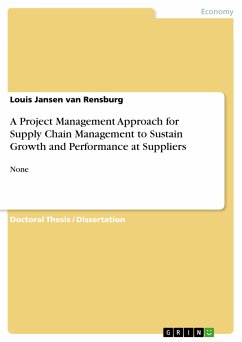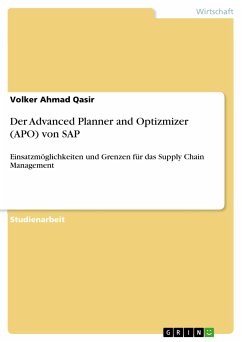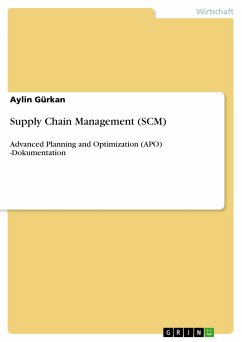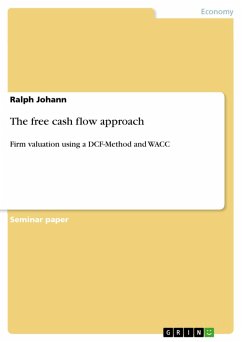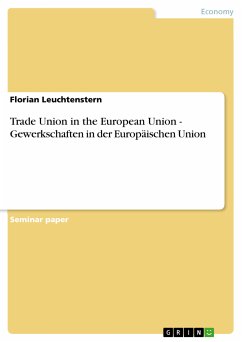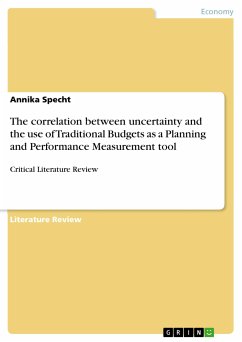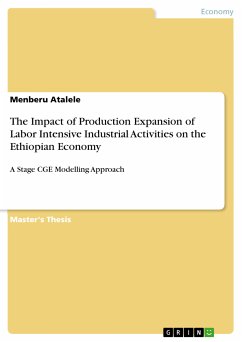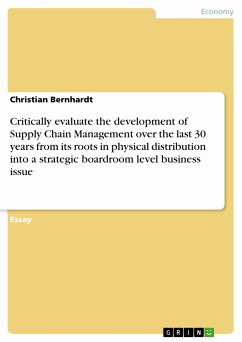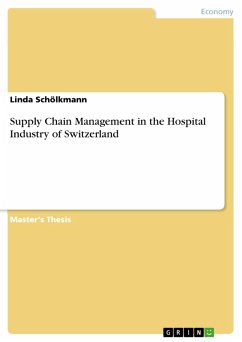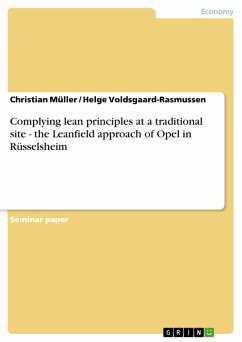
Complying lean principles at a traditional site - the Leanfield approach of Opel in Rüsselsheim (eBook, PDF)
Sofort per Download lieferbar
16,99 €
inkl. MwSt.

PAYBACK Punkte
0 °P sammeln!
Seminar paper from the year 2004 in the subject Business economics - Supply, Production, Logistics, grade: 80 of 100 points, Stockholm School of Economics (Logistics Seminar), course: Advanced Supply Chain Management, language: English, abstract: The purpose of this paper is to evalua te the decision of Adam Opel AG to restructure its production site at Rüsselsheim according to the so-called Leanfield approach. Therefore, a theoretical framework containing key principles of lean production and pointing out the importance of cooperation as a prerequisite for their implementation has been built...
Seminar paper from the year 2004 in the subject Business economics - Supply, Production, Logistics, grade: 80 of 100 points, Stockholm School of Economics (Logistics Seminar), course: Advanced Supply Chain Management, language: English, abstract: The purpose of this paper is to evalua te the decision of Adam Opel AG to restructure its production site at Rüsselsheim according to the so-called Leanfield approach. Therefore, a theoretical framework containing key principles of lean production and pointing out the importance of cooperation as a prerequisite for their implementation has been built up. Then the steps that led to the formulation of lean principles at General Motors, Opel's mother company and the realization of the Leanfield approach in Rüsselsheim are examined. The results are that Opel succeeds in complying with lean principles in the new Rüsselsheim assembly plant but that the Leanfield approach can not be perceived as generally applicable solution as it was due to the specific circumstances Opel faced at the existing Rüsselsheim site. 2 Motivation As the automotive industry is heavily dependant on effective manufacturing and supply processes to create advantages in an environment of intensive competition, future trends in logistics and supply chain management are likely to evolve in this industry. Therefore, we chose the restructuring of the Opel plant at Rüsselsheim to examine a novel approach to implement lean manufacturing at a traditional production site.
Dieser Download kann aus rechtlichen Gründen nur mit Rechnungsadresse in A, B, BG, CY, CZ, D, DK, EW, E, FIN, F, GR, HR, H, IRL, I, LT, L, LR, M, NL, PL, P, R, S, SLO, SK ausgeliefert werden.




